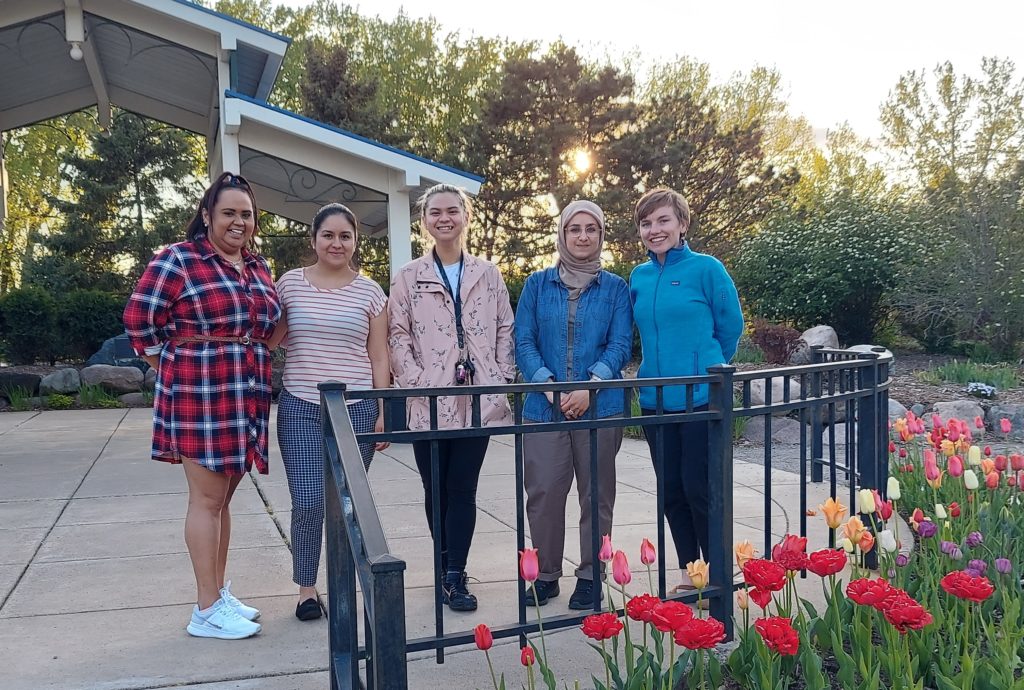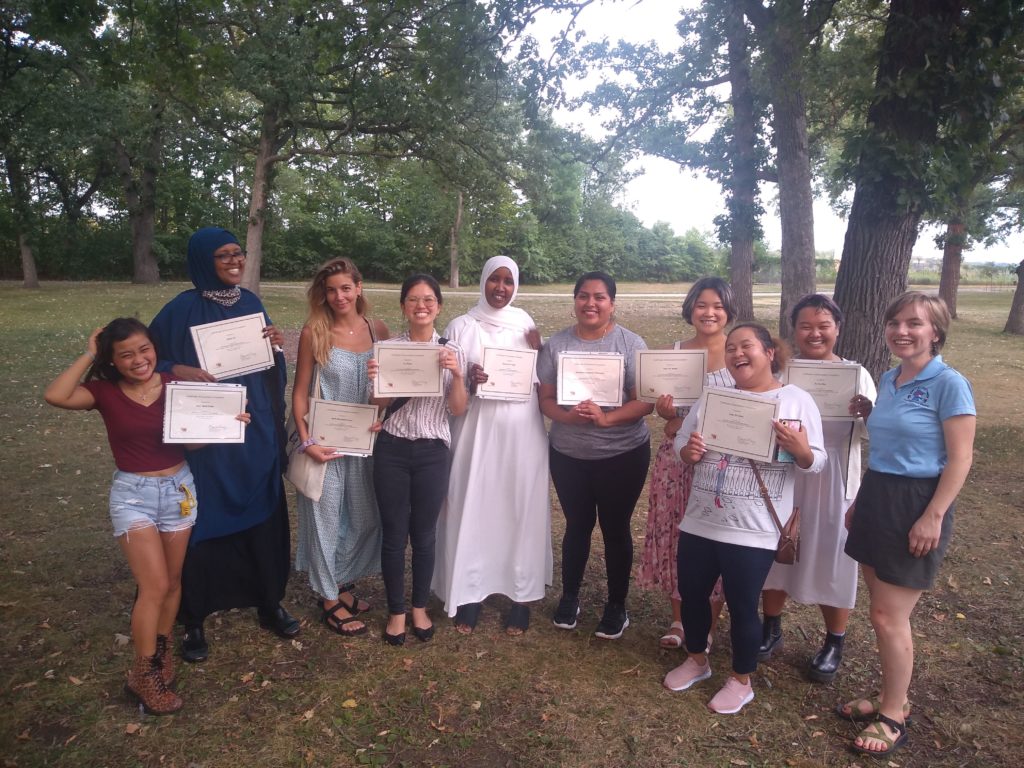
Even during the pandemic, KOM’s interpreter training program is providing new career pathways for prospective interpreters. This month, we looked back on how the program has progressed over the past year. We also spoke with two participants from the session that concluded in May about their experience with the program and what they’ve been doing since.
Pictured above: Lisa Gibson and May 2021 graduates of the Level 3 training program.
What Does it Mean to Be an Interpreter?
KOM’s free interpreter training program is available to bilingual speakers of a non-English first language hoping to begin their career in interpreting. The program has three levels, and participants can choose how many levels they’d like to complete. Level 1 introduces participants to basic principles of interpreting while also providing academic and career development opportunities. Level 2 provides the forty hours of training required to receive the Community Interpreter International certificate. At Level 3, remaining participants take nine credits of coursework from Century College’s Translation and Interpreting program to further hone their abilities.
According to Lisa Gibson, KOM’s Career Development Counselor for Interpreting, “Being an interpreter is more than just being bilingual. In addition to understanding two languages, you also have to navigate the dynamics of communication and your expectations of others regarding your role.” For this reason, the interpreter training program not only emphasizes key academic and linguistic skills, but also common ethics and protocols of interpretation.
Building Bridges of Communication
Over the past year, the interpreter training program has shifted to a primarily virtual format due to the ongoing Covid-19 pandemic. Despite the change in delivery method, the program was still able to train participants with useful translation and interpreting skills, as two recent graduates attest.
Thuy An Hoang is a first-generation student at Century College. As a sophomore during the spring 2020 semester, she was already looking for opportunities to get involved with the college’s Translation and Interpreting program, which led her to KOM. Alexandra Uzhca is from Ecuador, and moved to the U.S. when she was 15 years old, graduating from high school in 2013. After working in the service industry for seven years, she decided to join the interpreter training program in order to study something that would help her support her community. Both Thuy Hoang and Alexandra began the Level 1 program with around 20 other participants in May 2020. They persevered through the challenges of the pandemic and online learning to graduate from Level 3 in May 2021, along with three other students.
Describing her experience taking online classes, Alexandra said, “It was something that I’ve never experienced before, however it was a good experience.” Although she wishes she’d been able to attend her Century College classes in person, she added, “because the training was held virtually I could learn how to use different online tools that are very helpful nowadays.”

Opening Doors to New Opportunities
Since graduating, Thuy Hoang has found employment with an agency and is continuing to explore future career options. She said, “this program opened a new door to me to a profession as well as provide[d] me general knowledge about interpreting and translating if I want to keep pursuing it in the future.”
Alexandra is working as a school district Bilingual Assistant, and says she’s been able to use everything she learned while participating in the training program. “Overall, I am grateful [to] the Karen Organization of Minnesota and Lisa Gibson for all the support they gave me during the program and because they gave me the opportunity to start a career doing something that I love to do, helping my culture, my community.”
In addition to the Level 3 training session that finished in May, last month the most recent cohort of Level 2 participants completed their 40-hour community interpreter training. Many of these participants are still looking for jobs. They are equipped with diverse interpretation skills and represent a wide variety of languages, including Karen, Vietnamese, Somali, Spanish, Hmong, Oromo, Amharic, and Turkish. The next session is likely to begin in 2022, and there is still time to fill out this form if you’re interested in learning more.
Not able to participate in the next session, but want to know more about KOM’s interpreter training program? You can also visit our website, or check out our article about the program from last fall, “Much Needed Interpreters on the Horizon.”


 (651)788-7593
(651)788-7593


